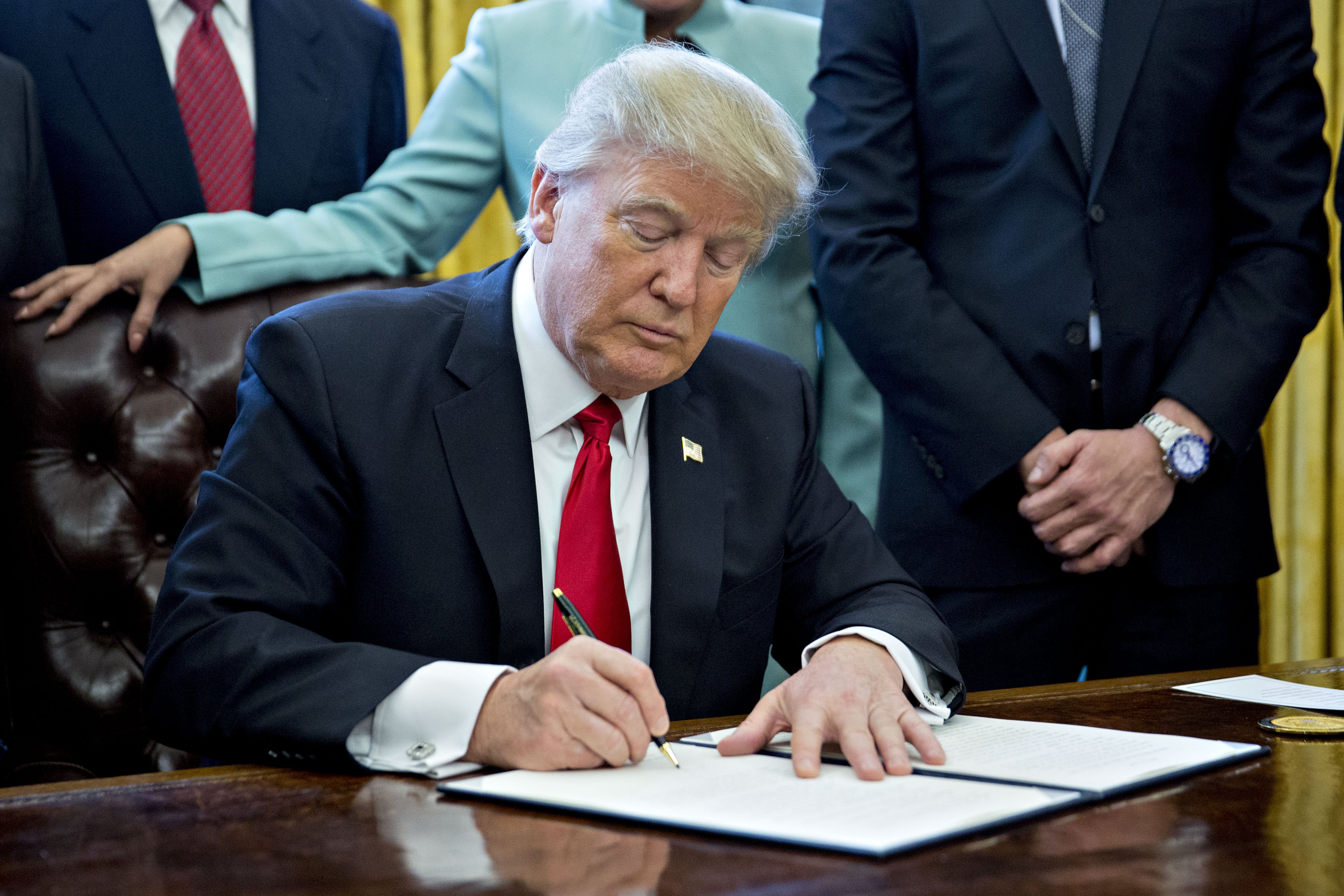
On January 27, U.S. President Donald J. Trump signed an executive order limiting immigration. The executive order says that citizens from seven Islamic countries (Somalia, Yemen, Iraq, Iran, Syria, Sudan, Libya) are temporarily banned from receiving a visa or entering the U.S. Also, the U.S. Refugee Admissions Program has been suspended for 120 days.
On January 28, after the order went into effect, people from the seven affected countries were detained in airports after they landed in the U.S., and then the protests began at airports. Worse still, some people were deported back to their countries immediately. Even foreign professors and students working or studying at U.S. universities who were outside the U.S. were detained or were refused entry into the U.S. This led to lawyers volunteering their time and expertise to help those affected. The protests expanded and spread around the world.
On January 29, people in Washington, New York, Virginia and Massachusetts sued the federal government to help the barred people, claiming the order was unconstitutional. That day judges in New York and Massachusetts issued temporary restraining orders to stop the executive order for violating Due Process.
On January 30, Washington state Attorney General Bob Ferguson brought a lawsuit against the federal government in the U.S. District Court in Seattle giving examples of people affected by the order. Various U.S. industries and board members also weighed in, expressing their concerns because employees of these companies would be affected by it. For example, technology companies like Google, Apple and Microsoft asked their employees from the seven countries not to leave the country for a while because it’s unknown if they will be able to return. In the movie industry, this year’s host of Hollywood’s Academy Awards said, “due to the anti-immigration order, some directors and staff members were not allowed to enter the U.S., so some nominees couldn’t make it to the awards ceremony.”
On February 3, U.S. Federal District Judge James Robart issued a restraining order that instantly stopped the executive order across America, so people could travel as they had before the order.
On February 4, the Justice Department filed an appeal with the Ninth Circuit Court of Appeals in San Francisco asking for an emergency stay, which the court refused on February 5. The court also said they would hear arguments from both sides on February 7.
On February 9, the Court unanimously denied the government’s request for an emergency stay. The White House said they were considering the decision and what to do next.
On February 16 President Donald Trump said he would issue a new executive order which will comprehensively protect the U.S. and the order would be tailored to the decision got down from the court.








